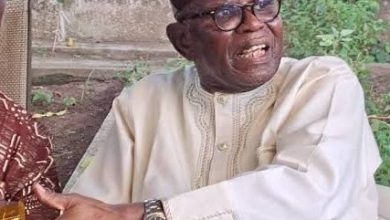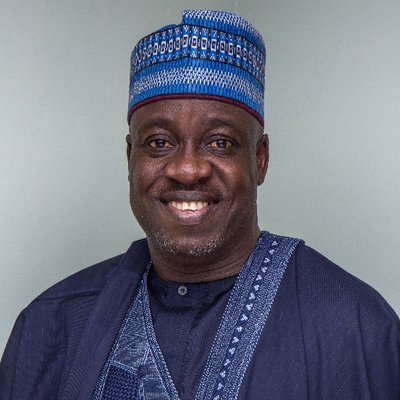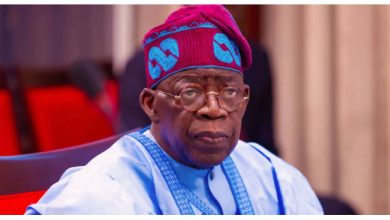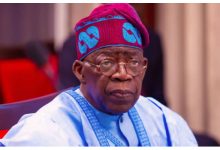Dave Umahi: Break the Rules, Leap to Victory
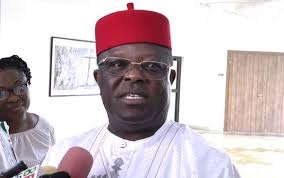
By Emma Agu
Like every politician, Dave Umahi, Governor of Ebonyi State, means different things to different persons. Ask some of his opponents, they will tell you that he is a wily, ruthless operator who spares to time dealing with opponents. But to his admirers, he is God-sent; a very effective leader, under whose watch, Ebonyi State is witnessing unprecedented people-centred development.
To understand the Dave Umahi phenomenon, cognizance should be taken of the fact that, in addition to being Governor of Ebonyi State, is also chairman of the South East Governors Forum, a position he is holding, at a very challenging period in the history of the country. Never, since the end of the civil war, has the South East zone been so volatile, caused by the agitation of the Indigenous Peoples of Biafra (IPOB), an organisation that, for the greater part, has demanded for the restructuring of Nigeria, based on a United Nations supervised. Naturally, this has pitted the group against the Federal Government: remember the mantra; Nigeria’s sovereignty is not negotiable!
Besides, in spite of the effort of the previous administration in which Dave Umahi served as deputy governor, Ebonyi State, like many others, was still in dire need of faster infrastructural development, people empowerment and a pragmatic engagement with its diverse neighbours, to the north and east. It was under that condition that Umahi assumed duties, as governor, after a bitterly fought election in which his predecessor vigorously opposed his emergence.
Now that Governor Umahi is seeking re-election, my view may not be important, as only the electorate, in Ebonyi State, now has the power to return a verdict, on his performance. Whether he succeeds or not is far beyond this article or the writer. However, no matter the outcome of the 2019 governorship election in Ebonyi State, history will remember Umahi for his ability to insulate Ebonyi State and the South East, from total war, by dousing the tension that was generated by the IPOB crisis. Not many people would have astutely navigated the landmines that stuck out, as some hawks canvassed a confrontational posture with the Federal Government. Given the emotions of the time, the hawks forgot that, like the President, every Governor had sworn to uphold the sovereign status of Nigeria. Umahi, with the other Governors were, also, acutely aware that beyond the rhetoric of bravado by the young idealists in IPOB, an open confrontation with the military would throw the South-East into a cauldron whose end, no one could predict. Umahi and his colleagues saw what the young idealists, without prejudice to their indignation, could not see: that apart from human attrition, another war in the South East would destroy the zone economically and erode the post-civil war gains.
It certainly took great courage to run against the popular sentiment. Umahi was maligned, threatened and despised. Yet, he stood his ground: he was focused and firm, forthright and determined. Umahi’s action reflected a clear understanding that, there are moments when a leader will have to defy popular sentiments and stick to his convictions, based on the information at his disposal. That was leadership at its best. After all, an Igbo saying has it that what the diochi (palm wine tapper) sees from the tree top, the tallest man, standing on a chair, will not see it! As Governor, he had information which the common man, did not have.
Actually, what has emerged is that Umahi’s style defies conventional political behaviour in Nigeria, especially, the South East. He has no qualms breaking the rules, insofar as he is convinced that the end will justify his position. In no area is this more starkly pronounced than his cosy relationship with President Muhammadu Buhari. Those from his South East zone, who see his behaviour as inexcusable, as not “conforming to the rule”, have history on their side. In the Second Republic Nigeria, Governor Sam Mbakwe of Imo State and his Anambra State counterpart, Chief Jim Nwobodo, both of the defunct Nigerian People’s Party (NPP), maintained a highly tempestuous and adversarial relationship with President Shehu Shagari (of the National Party of Nigeria, NPN).
Here is Umahi, of the People’s Democratic Party (PDP), openly fraternizing with President Buhari, of the All Progressives Congress (APC), a man who many, from Umahi’s zone, do not see as a friend. That is yet another rule broken. Umahi is right, yet again. He appreciates that, as President of Nigeria, Buhari has the entire country as his constituency and Ebonyi is part of that constituency. For another, Umahi has refused to play the stereotypical ethnic politics that is largely responsible for Nigeria’s underdevelopment; of course, the ethnic politics is only a façade that plays up in furtherance of the selfish political interests of the elite, who see the country as a fiefdom for their families.
On balance, it is difficult for anyone to prove that Ebonyi has suffered, by way of Umahi’s style. If anything, Ebonyi has recorded accelerated and sustained improvement in infrastructure and people empowerment through massive investment in roads and agriculture, among other achievements. Today, Abakaliki, the state capital, wears a new look. Umahi’s background as an engineer is rubbing off on infrastructure delivery. A tourist who last visited Abakaliki four years ago, will be forgiven if the person, on seeing the flyover and streetlights of today, mistakes the state capital for Abuja.
What is significant is that, unlike some governors who begin and end provision of infrastructure, in the state capital, Umahi has pursued an aggressive policy of road development in the rural areas where, as at the last count, a minimum of 15-kilometer concrete roads was done in each of the thirteen local governments. The road development is not isolated; rather, it is intertwined with the agric development policy of the government. It is to Governor’s credit that, from the inception of his administration, he identified agriculture as the fulcrum on which his laudable people-empowerment policy would revolve. The loan scheme program for civil servants and the Central Bank of Nigeria’s Anchor Borrowers Program (ABP) have literally left Ebonyi State awash with money for agriculture.
Aside from the several awards he has received, no one has captured the essence of Umahi’s agric revolution as graphically as Audu Ogbeh, Nigeria’s minister of agriculture did, during a visit to Ebonyi State, in 2017. I will like to reproduce excerpts from Ogbeh’s impressions, courtesy of Emma Anya, chief press secretary to Governor Umahi. Addressing Umahi, Ogbeh said: “Governor, I hear you banned the sale of foreign rice in your state. God bless you for it. I also hear you invited young men to come back from Lagos and work here, God bless you also for it. They will be happier here in this state than living under the bridge or substandard accommodation in Lagos, Abuja or elsewhere.”
To Ogbeh’s accolades, I wish to make the following remarks. First, every government, like that of Ebonyi State, must have a clear and honest vision. Second, every governor must exhibit unquestionable political direction and will. Third, diversification should be anchored on comparative advantage, not the copy cat which, more often than not, lacks transparency. For Ebonyi, agro allied industries is the way to go, through the state is not ignoring its rich deposits of solid minerals Fourth, it is a fallacy that Nigeria cannot feed itself. It is an even bigger fallacy to insist that protectionism, such as the rice ban, will always be counter-productive. Like the Ebonyi State Government, the Federal Government deserves commendation, in the same way that the Godwin Emefiele-led Central Bank of Nigeria, CBN deserves unqualified accolades for its single-minded prosecution of the Anchor Borrowers Programme. For the thousands of school leavers who pace all over urban cities, in search of non-existent jobs, the agric revolution of the Umahi Administration has, for the first time, afforded them the difference between mere existence and having a life. Paradoxically, it is for the reasons of the rules he has broken that, contrary to the wishes of his opponents, Umahi, could simply leap to a landslide victory, in the 2019 governorship elections.
*Emma Agu, CEO of GAVINTA & ASSOCIATE LTD, a media consultancy, is a fellow of both the Nigerian Union of Journalists (NUJ) and the Nigerian Guild of Editors (NGE).


